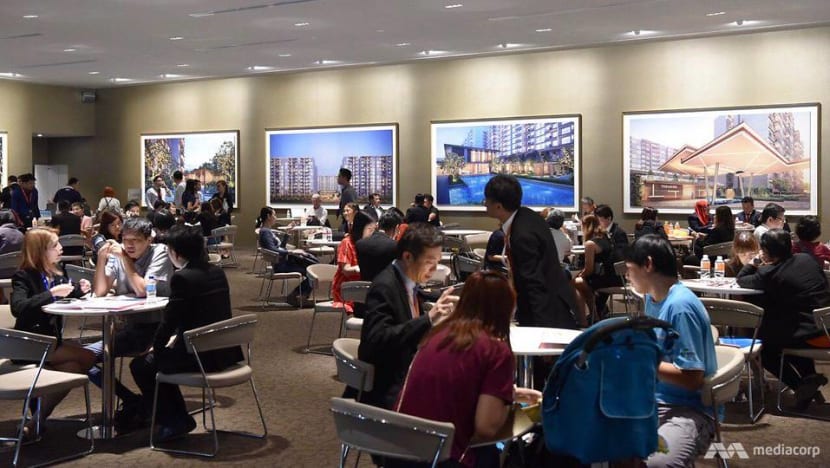Property agent numbers in Singapore hit record high of over 36,000
The number of property agents has been growing every year since 2017.


This audio is generated by an AI tool.
SINGAPORE: The number of property agents in Singapore has reached an all-time high, continuing a steady growth streak since 2017.
As of Jan 1, there were 36,058 registered agents, up from 35,251 a year earlier, according to the latest figures from the Council for Estate Agencies (CEA).
This marks the highest number of agents since the CEA was set up in October 2010 to regulate the industry. The statutory board introduced measures such as licensing property agencies and mandating registration for agents to boost professionalism in the sector.
In response to queries, CEA said 1,937 new agents joined the industry last year. This is slightly lower than the 2,170 new entrants in 2023 and 2,179 in 2022.
While the number of agents has risen, the number of property agencies has declined. At the start of this year, there were 1,046 licensed agencies, down from 1,090 the year before and 1,118 in 2023.
PropNex remains the largest agency in Singapore with 12,636 agents. ERA comes next with 8,648 agents, followed by Huttons Asia with 5,699, OrangeTee & Tie with 2,756 and SRI with 1,493 agents.
Amid the industry's growth, the CEA is reviewing whether to require property agents to facilitate a minimum number of transactions to remain registered.
This review stems from concerns raised during industry engagement sessions about the "potential risks" posed by inactive agents. Such agents may be less familiar with evolving regulations, transaction processes and market trends, which could affect the accuracy of advice provided to clients, a CEA spokesperson told CNA last month.
The regulator is consulting industry stakeholders on the feasibility and implementation of this requirement.
In Singapore, property agents must pass an exam and be registered with the CEA through a licensed agency before they can conduct any estate agency work. The registrations are renewed annually at a fee, with agents having to fulfil criteria such as clocking at least six hours of training.
Some property agencies have adjusted their policies in response to the CEA's review. ERA, for example, discontinued coverage of renewal fees for its agents since Jan 1. New agents will, however, continue to have these fees paid by ERA for the first two years.
The agency said the change allows resources to be allocated to other initiatives and addresses the trend of inactive agents switching agencies to benefit from fee coverage.
ERA said it has since lost about 300 agents, most of which were inactive or part-time agents with no transactions in the past year. These departures were partly offset by the addition of 230 new agents.
PropNex said it does not cover renewal fees, saying that renewal of an agent's licence is an individual responsibility.
“This policy has contributed to a high number of active salespersons and the strong performance of our agency. This also fosters accountability, helping us maintain a highly engaged and committed salesforce,” said chief agency officer Eddie Lim.
Other agencies, such as OrangeTee & Tie, continue to pay agents' renewal fees. It said it has been doing so since 2022 to help agents with business costs.
Asked if it might change its policy, CEO Justin Quek would only say that the agency continually reviews its policies to ensure they align with market demands and the company's long-term goals.
Huttons Asia said support for the annual fees for its agents is given out on a “circumstantial basis”.
For example, it did so when the property market took a hit at the start of the COVID-19 pandemic. Realtors who achieve specific gross commission levels also get subsidies for their fees the following year, said CEO Mark Yip.
















